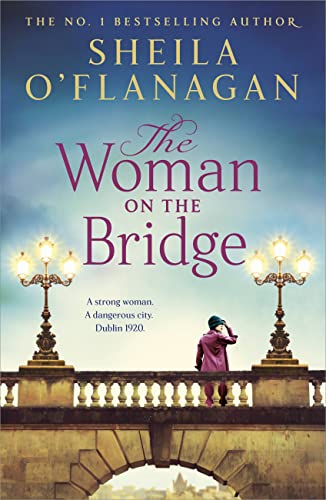The Woman on the Bridge
Dublin, Ireland, 1920: a stone crashes through the window of the shop where Winnie O’Leary works. Terror grips the poor girl as she shelters under the counter and listens to battle running in the street outside. Cue romance when an attractive young freedom fighter enters to apologise for the damage – and Winnie gives him an ear-bashing.
Despite her misgivings, the alluring young man, Joseph Burke, draws Winnie into politics that she’d rather avoid. Not because she doesn’t want freedom: she does. But even more, she wants to keep her family safe – and her father has already been shot. But there is no safety for anyone. Her father had been an innocent bystander, and Winnie’s troubles escalate as she becomes drawn into Joseph’s family and their struggle for a republic.
The book is primarily a romance, but there is a lot of complicated politics to be explained. The author deserves credit for making explanations as clear and concise as possible, but there is still quite a lot of it. The politics comes to life as Winnie, her family and friends, simply through trying to survive, find their actions lead to fractured families and broken friendships.
Winnie’s story is a typical historical saga, with trouble after trouble piling upon her. It’s not only wars: they also suffer disease, drunken fights, and childbirth. It’s all eminently believable, and an author’s note confirms the inspiration of her grandmother’s oral history. Winnie soldiers on, as she must, earning the label ‘strong woman’. But, despite all her sorrows, the book retains the warmth of hope and of love.
Recommended for lovers of sagas and romances – and an easy reading introduction to Ireland’s fight for independence.










